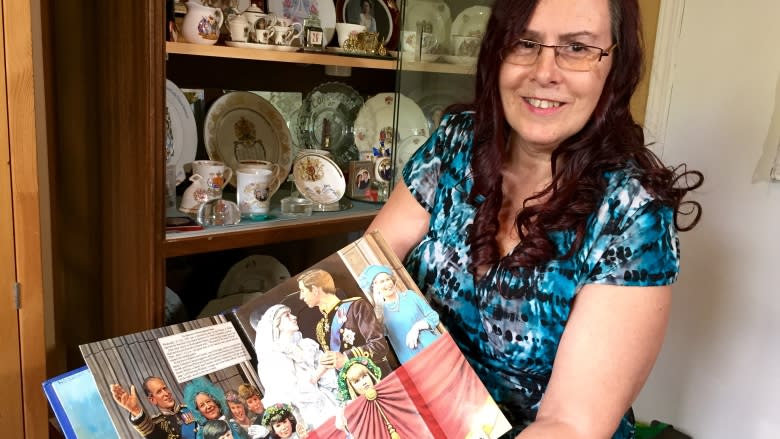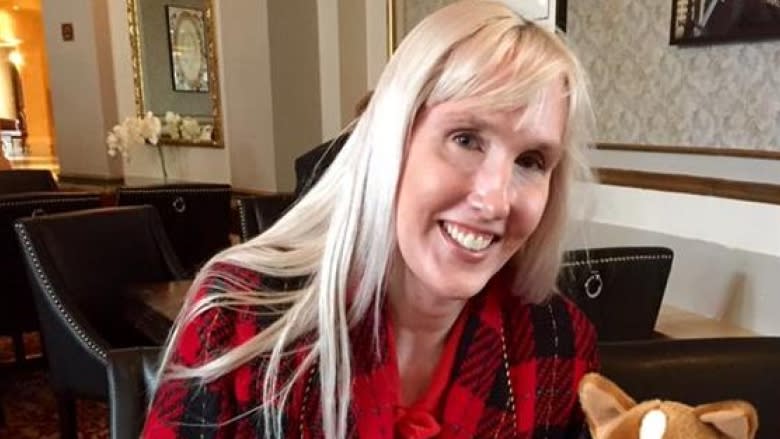Royal Family support by Canadians waning, poll indicates
Many Canadians are losing interest in the happenings at Buckingham Palace, and don't like the idea of Prince Charles taking over after Queen Elizabeth dies, a new poll released on Victoria Day indicates.
"Just fewer than four in 10 favour abolishing monarchy in Canada upon the death of the Queen," Forum Research says in a release Monday, based on the poll of nearly 1,300 Canadians.
Fifty-four per cent of the 1,286 polled don't want to see Charles on the throne after his mother dies.
While about 45 per cent of those polled were against distancing the nation from its royal roots, men (44 per cent), the rich (46 per cent of those earning $80 to $100,000 annually), Quebecers (71 per cent),NDPers (49 per cent), francophones (72 per cent) and moms with kids under age 18 (46 per cent) think severing those ties is just what Canada needs.
About 16 per cent of respondents didn't have an opinion either way, Forum Research said.
The results in some ways mirror numbers from a poll taken in 2013 following the birth of Prince George to Kate, the Duchess of Cambridge, and husband Prince William. Thirty-seven per cent of Canadians polled were armchair monarchy abolitionists back then, with 48 per cent opposed.
"These measures appear to be static across two years, but you must remember that we polled immediately after a royal birth each time. It is clear there are a substantial number of people who, while they support the monarchy in Canada, don't necessarily support the heir apparent," Forum Research president Lorne Bozinoff said in a release.
William and his wife, the Duchess of Cambridge, became parents again last month, to a girl, named Charlotte Elizabeth Diana.
'I believe in the monarch'
Despite the latest poll's results, the monarchy has its fair share of Canadian fans.
The royals have always been popular with people such as Jo-Anne Giesbrecht, who grew up with Elizabeth as their Queen.
"I believe in the monarch. I've always believed in it," she said, showing off her "royal room" filled with memorabilia.
"I think they should be as relevant as they always have been."
But a new generation, led by Prince William, is attracting a new following, says Belinda Bigold, owner of High Tea Bakery in Winnipeg.
Three weeks after Princess Charlotte was born, she's still trying to keep up with the orders of mini imperial cookies decorated with baby pink crowns.
"It's the diehard royals with their tea parties, but all the ladies who are pregnant or just had babies, now you have the little crowns at their baby showers," she said.
"Will and Kate have really brought back the popularity. Now she wears a dress and it sells out in 10 seconds, it's the same thing with the babies. They've brought in a whole new audience of younger people."
49% of youth against monarchy
The Forum Research poll tells a slightly different story.
Forty-nine per cent of young people in the poll were in favour of abolishing the monarchy in Canada.
"How you ask the question changes everything," said J.J. McCullough, a political commentator and the B.C. spokesman for Citizens for a Canadian Republic.
"Should Canada abolish the monarchy? Should Canada cut ties to the British Royal Family? That gets a very different response from: Should Canada have a Canadian citizen living in Canada as head of state of Canada?"
A whopping 73 per cent of Forum Research poll voters think Canada's head of state should be Canadian born and reside in Canada.
McCullough and his group wants to see Canada transition from a constitutional monarchy with a foreign monarch as head of state to a democratic republican system with a Canadian resident as head of state.
"It seems preposterous that a 21st-century, independent democratic country like Canada still has a foreign monarch, our colonial master as our nominal head of state," he said. "It's confusing and humiliating that Canada still has to pay deference to a monarch across the sea."
He points to countries like Germany and India as examples, where there's a figurehead president who's either elected directly by the people or chosen by parliament.
"We'll always have our history as a British colony but at some point, you evolve out of this in the same way that children moving out of the parents' basement, countries move out of the nest of the colonial mother hen and I think that's the point Canada is at now," McCullough said.
Monarchy central to constitution
However, it wouldn't be easy to replace the monarchy, said Philippe Lagassé, associate professor of public and international affairs at the University of Ottawa.
The important thing to remember is that there's a vast difference between the Royal Family and the legal office of the Crown.
"Whatever you think of the people that surround it, as an institution, it's fairly central to the constitution," Lagassé said.
"So it wouldn't be impossible to get rid of but would require some legal gymnastics — especially if you wanted to do it without launching us into a constitutional amending procedure."
Opening the Constitution would create a whole other set of problems. Different provinces and groups like First Nations would want to renegotiate their roles in the confederation.
Meanwhile, the popularity of the royals actually gives the republicans ammunition.
"Having the celebrity aspect means they can say, 'This is all hogwash, it's all meaningless, it's empty,'" he said.
Darcie von Axelsteirna, Manitoba chairman of the Monarchist League of Canada, is a strong supporter of keeping the Queen — and future king — as Canada's head of state.
"I think it's a part of our national identity and it represents all of Canada and Canada's history. It's non-political, non-partisan and a symbol for everyone in Canada," she said, adding she's not worried about the monarchy's future in Canada.
"The monarchy is a very old institution but it's not a stationary one. It's always changing. It's existed for over 1,000 years and that's an example of how adaptable it is."





